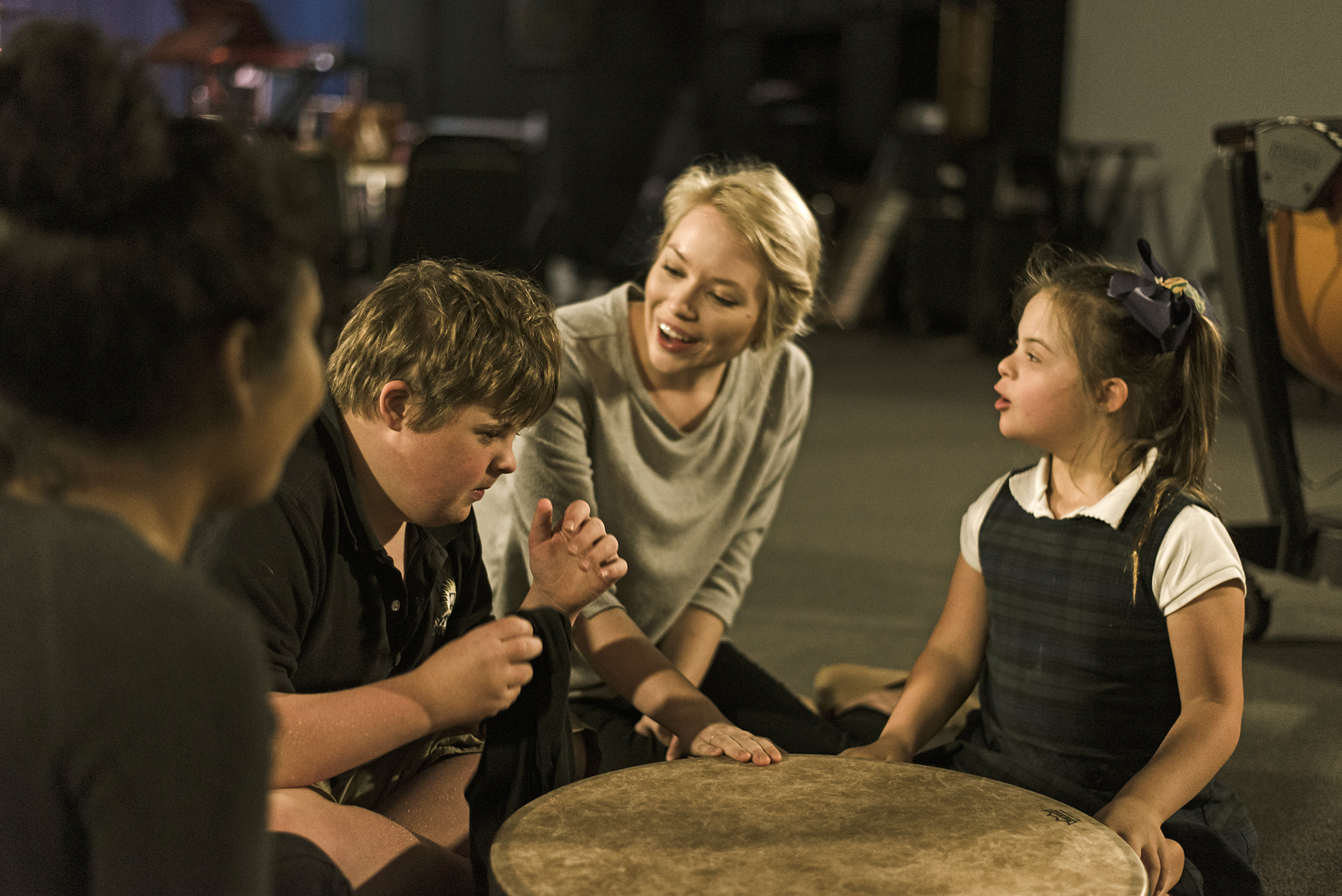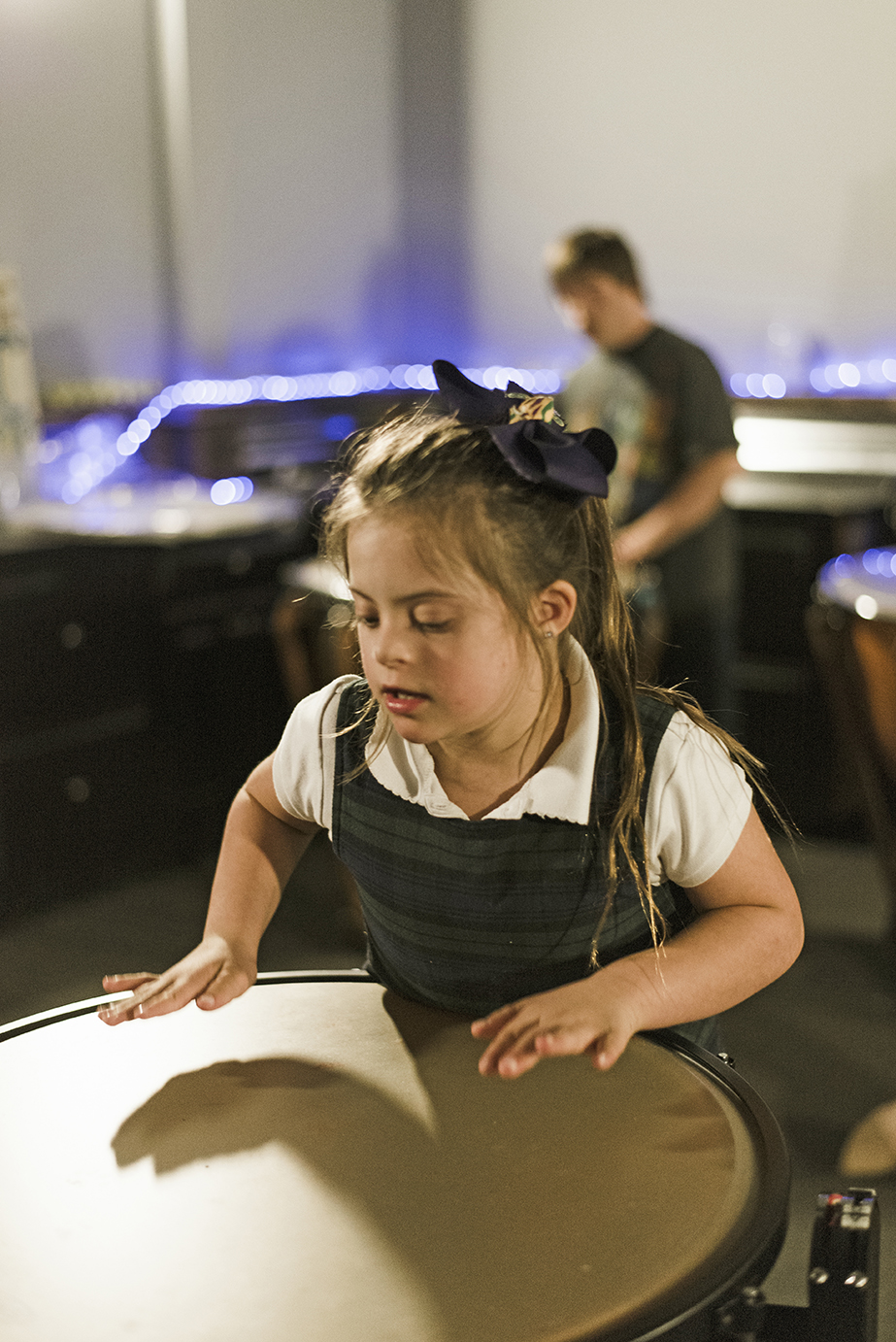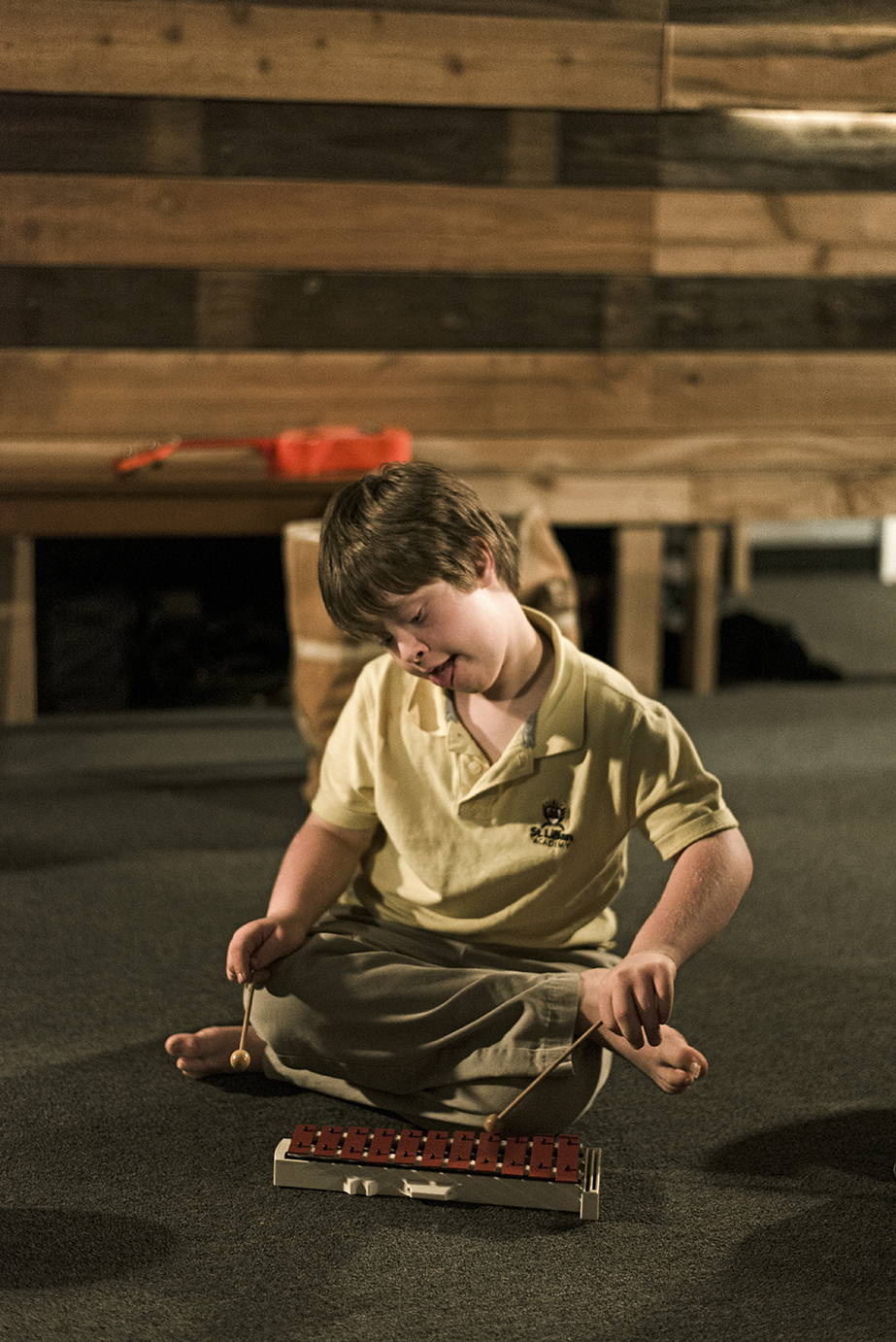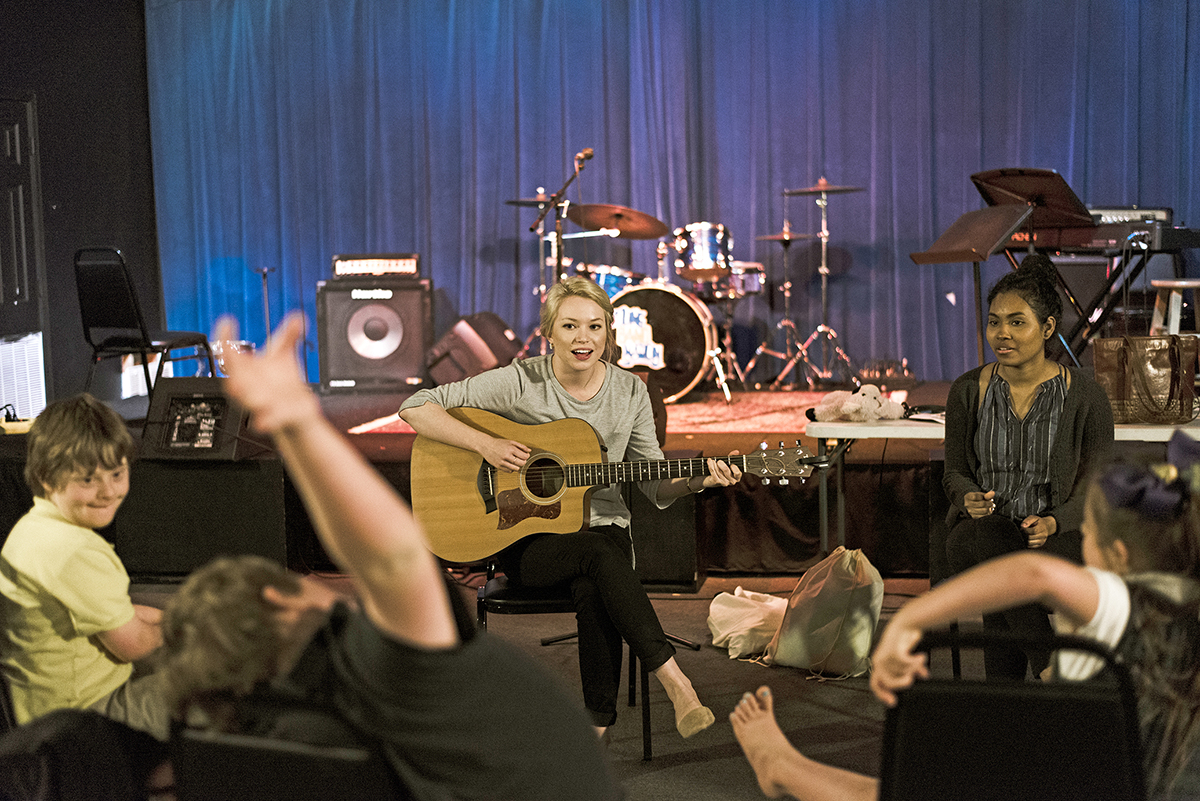
Local studio ‘amplifies’ adaptive music education for people with disabilities
It’s not often audience members get to participate in the vocal warm-ups of a show.
But today, Sarah Burke is directing her audience to create makeshift vowel sounds as she takes them through scale progressions. Then, she has them make “buzzing” noises with their lips.
The audience is joyful, easily mixing laughter with smiles as they watch the young performers take the stage and join in the vocal warm-ups with them.
|
|

This is Amplifi’s first performance, and Burke is the lead teacher for the adapted music program, designed for people with intellectual disabilities or for those who have suffered some sort of trauma. The early March performance capped the organization’s first eight-week session in Baton Rouge.
Doug Gay, owner of Baton Rouge Music Studios, brought the program—developed by The Real School of Music of Burlington, Massachusetts—to Baton Rouge last fall, calling it a “new branch” in the music company’s portfolio of private and group lessons, camps and its young band development program.
“We are the first licensee of this program [nationwide],” Gay says, adding they will also bring Amplifi to St. Lillian Academy, a local school that specializes in teaching students with disabilities.
The program’s adaptive group curriculum, which uses an individualized teaching approach, called Universal Design for Learning or UDL, incorporates such components as physical movement and personal songwriting as well as an assortment of musical instruments all designed for personal expression.
Chanler Holden, mother of 14-year-old performer Wiley Mittendorf, says her son has gained self-confidence through the program.
“He has severe speech delay and he tends not to talk, but he was up there (on the stage) making verbal sounds in the microphone. He feels like he is part of a group. It makes you want to tear up because he is having a good time,” she says.
Burke says that kind of achievement is a big part of the program.
“From a very scientific approach, music links both hemispheres of the brain, so they are working in unison when you are listening and playing music,” she says. “From my experience personally [as a music teacher], I have discovered that I am providing my students with an outlet for their emotions.”
While getting to know her first four students, all of whom have Down’s syndrome, Burke honed in on their love of family vacations. Using the students’ words, Burke and Gay wrote a song that not only featured a chorus for all to sing (“I like trips/Trips are fun/I like traveling with the sun”), but also a “solo” part that shared highlights from each student’s vacation.
It was this song that Burke and her assistant teacher, Zalika Joyner, helped the students bring to the stage in Amplifi’s first performance, and one that filled the room with cheers and smiles.
Burke, who also helped write Baton Rouge Music Studios’ preschool music curriculum, says through songwriting, the students make a personal connection to music.
This interdependence can be powerful in helping boost socialization, emotions and self-confidence—benefits she has seen not only in her own Amplifi class, but also during her training with war veterans and victims of trauma.
Burke and Gay shared powerful memories of working with adults suffering from brain injury.
“These are adults who can remember life before their accidents. They are dealing with incredible emotions, yet we saw how these classes, especially the songwriting, really helped,” Gay says.

Vickie Willson understands that feeling of joy. As the mother of a student in Burke’s first Amplifi class, Willson says programs like this help fill a gap for many families.
“When kids with special needs get older, they get lost in the cracks,” she says, adding that it can be difficult to find activities and games that are both fun and enriching for older students.
Willson says her 18-year-old son, Josiah, is typically shy, but he treated her to a private concert while driving home from the class one day.
“Usually he gets in the car after class, and the first thing he wants to know is what’s for dinner. But after the final class, he started singing his song and talking about a [new] friend in the class,” she says. “I thought, ‘Shoot. That was our last class.’”
Or was it? Willson already plans to enroll Josiah in another Amplifi session this spring.
This article was originally published in the April 2017 issue of 225 Magazine.
|
|
|
